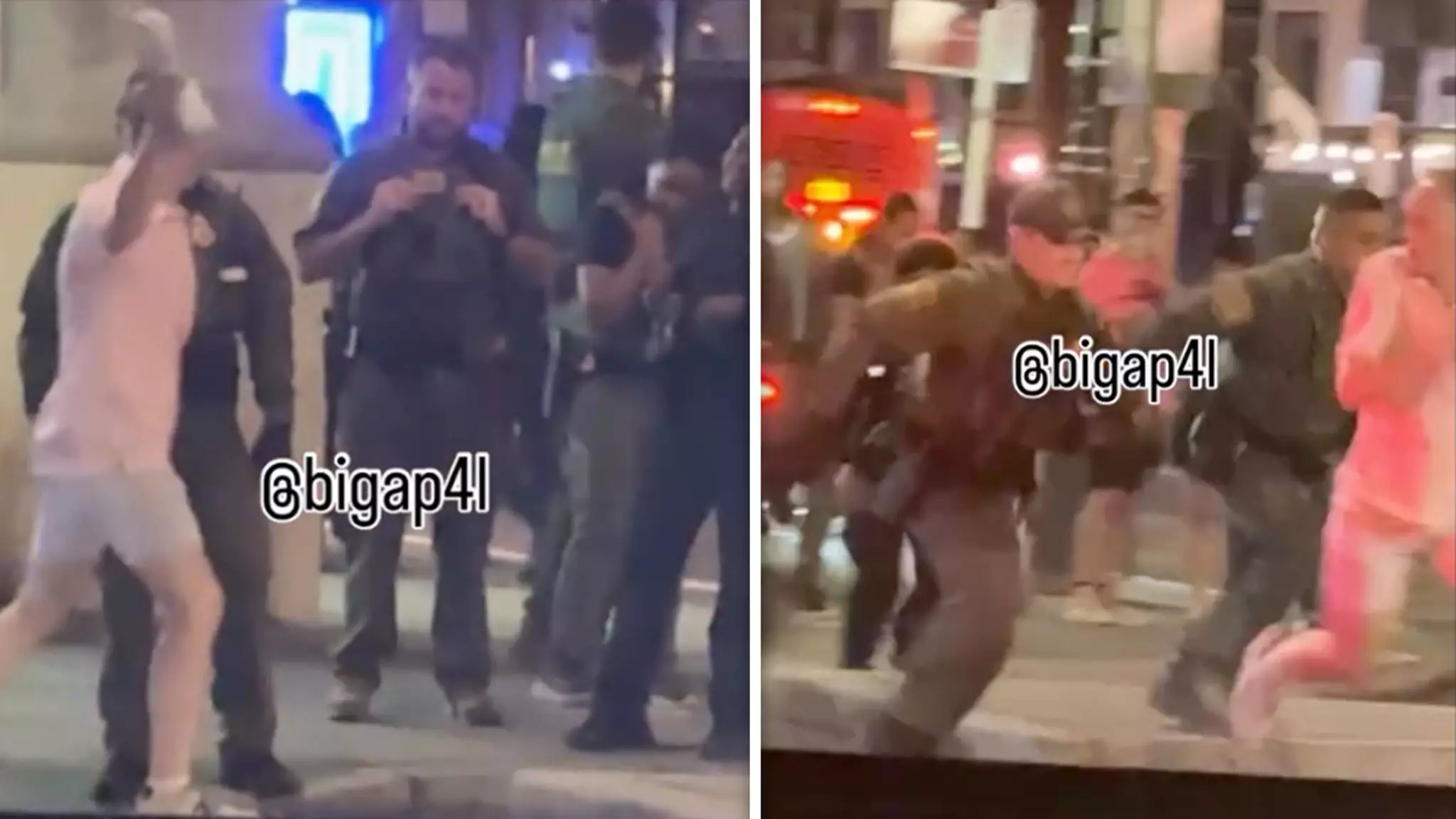In a landscape where protests often manifest through signs, chants, and marches, acts of defiance that employ humor or absurdity possess an undeniable potency. The incident involving a man hurling a sandwich at federal officers exemplifies this principle. By choosing a mundane household item as his weapon, the protester transforms a political expression into a satirical statement about authority and civil liberties. Such unconventional methods serve to underscore frustrations with government actions, especially when citizens feel marginalized or ignored by institutions they perceive as overreaching. Ultimately, this act is less about the sandwich itself and more about challenging the legitimacy and tone of the state’s presence in everyday life.
The Complex Dynamics of Law Enforcement and Civil Liberties
The deployment of federal agents in Washington, D.C., amidst rising tensions and contentious political climates, has sparked debate about balance and accountability. While law enforcement officers are tasked with maintaining safety, their roles can sometimes become symbols of enforcement overreach, especially in a city rife with protests and unrest. The response to the sandwich-throwing incident—leading to an arrest and criminal charges—illustrates this tension. It raises questions about how far authorities should go in responding to symbolic acts of dissent. Are they protecting public order, or are they stifling civil liberties? The context becomes more complicated with reports pointing to perceived disparities in law enforcement priorities, such as targeting minor violations over more serious threats.
The Political Climate and Its Impact on Public Perception
Recent policy decisions, like the deployment of federal forces in D.C., are deeply intertwined with broader political narratives. Some view these measures as necessary for restoring order, while others see them as intimidation tactics designed to suppress dissent. The narrative is further complicated by statements from officials claiming to stand firmly behind law enforcement, framing any challenge to the police as an attack on authority itself. This polarized discourse feeds into a contentious environment where civic activism is often met with hostility. The incident with the sandwich is emblematic of this divide: a small act of protest that, in the eyes of many, symbolizes larger issues of freedom, control, and the limits of state power.
Reflections on Protest, Authority, and Personal Agency
What does this incident reveal about the spirit of resistance in a modern democracy? It suggests that citizens are not passive recipients of state power but active participants who may choose symbolic acts to voice their discontent. While the legality and appropriateness of their actions might be debated, their willingness to challenge authority—even with humor or absurdity—reflects an underlying desire for recognition and engagement. Ultimately, the act of throwing a sandwich underscores the importance of respecting individual agency while also recognizing the complex, often fraught, relationship between citizens and their government. In a society that values free expression, such moments serve as a reminder that dissent, whether through words or unexpected actions, remains a vital component of democratic life.

